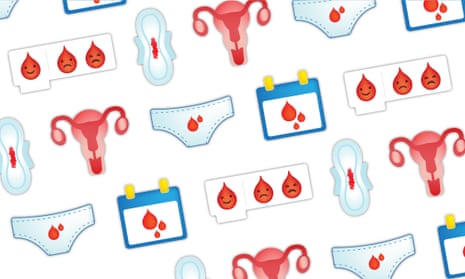The newest emoji made crimson waves across the internet upon its unveiling this week – and that was exactly the point.
Plan International UK’s fight for the cartoon red blood droplet – an emoji meant to symbolize menstruation – was almost poetically symbolic to the message it was trying to convey with it: that periods aren’t shameful.
We are thrilled to announce that we are actually getting a #PeriodEmoji!
— PlanInternational UK (@PlanUK) February 6, 2019
It is through your support that we can now celebrate that the @unicode have announced that we will get our first ever #PeriodEmoji in March 2019 🎊
Find out more here ▶https://t.co/dKd4WwEShX pic.twitter.com/CdyG5fapAx
The organization began work on the emoji in 2017 after finding that 48% of girls and women in the UK between the ages of 14 and 21 are embarrassed by their periods. “Ending the shame around periods begins with talking about it,” Lucy Russell, the head of girls’ rights and youth at Plan International UK told the Guardian.
Plan organized a popular vote on the design of the symbol, with five options including a sanitary pad, a monthly calendar, smiling blood droplets and a uterus. A pair of “period pants” eventually won the contest, but Unicode Consortium, the body that maintains and regulates emojis, rejected the choice.
Eventually, Plan partnered with NHS Blood and Transplant to share that organization’s proposed new emoji: a red blood droplet. (For NHS Blood and Transplant, the cartoon “represents the importance of blood donation” and not menstruation.)
Unicode Consortium has not publicly released its reason for denying the original design and did not respond to a request for comment. Officials with Plan International UK, too, did not immediately return requests for comment.
Many activists and health workers agreed that the emoji was “revolutionary” and an important step in reducing the stigma around menstruation. “An emoji may seem minor to other people, but it started a conversation,” said Lamanda Ballard, founder and executive director for Flo Code, a non-profit based in Austin, Texas, that provides menstruation products to underserved communities. “Where you once would have been shunned for grabbing a box of tampons at a store, we’re now in a place where we can have this open conversation online.”
But some, including Ballard, found the compromise disappointing. Ballard pointed out the general hypocrisy of getting squeamish over a pair of white panties showing a few drops of blood.
“They think, ‘Oh bloody panties is an emoji is too much,’ but then they have a poop emoji,” said Ballard. “How is one thing worse than another? A period is completely natural.”
“The drop of blood feels like a half-measure,” said Megan Vaughan, a 35-year-old writer and PhD student in Essex. “It’s like giving us one of those nudge-nudge emojis, like the aubergine is, rather than actually giving us anything that really represents the reality of menstruation. The red droplet still has this sense of shame about it. Like it wants to talk about periods but not in too open a way, not in the kind of way that might offend delicate, largely male, sensibilities.”
In her work with Flo Code, Ballard often thinks back to when she first got her period, and how she used to sneak around in shame with menstrual products hidden in her shirt.
When she got old enough to volunteer at homeless shelters, she saw firsthand how the shame around menstruation could translate into a public health crisis. “There was such a huge need for menstrual products, but nobody was donating them,” Ballard said. “That stigma is still there.”The younger generation seems to have a healthier and more accepting perspective when it comes to menstruation, said Andrea Askowitz, a writer in Miami who had tweeted a bloody sanitary pad in response to the period emoji.
“My daughter, who is 15, we were out shoe shopping a few days ago, and she was wearing just the tiniest white shorts and all of sudden, she popped her butt out and asked, ‘Do I have my period?’” Askowitz laughed. “I said, ‘No? But do you want to put on a pad?’ And she said, ‘Nah. You’ll tell me.’ Just no shame! It was great.”
It had taken Askowitz time to get past the feeling of shame around her period, but now as she heads into menopause, “I’ve been obsessed,” she said.
“Attitudes are changing,” Askowitz said. “We’ve come far, but we still have a long way to go.”
